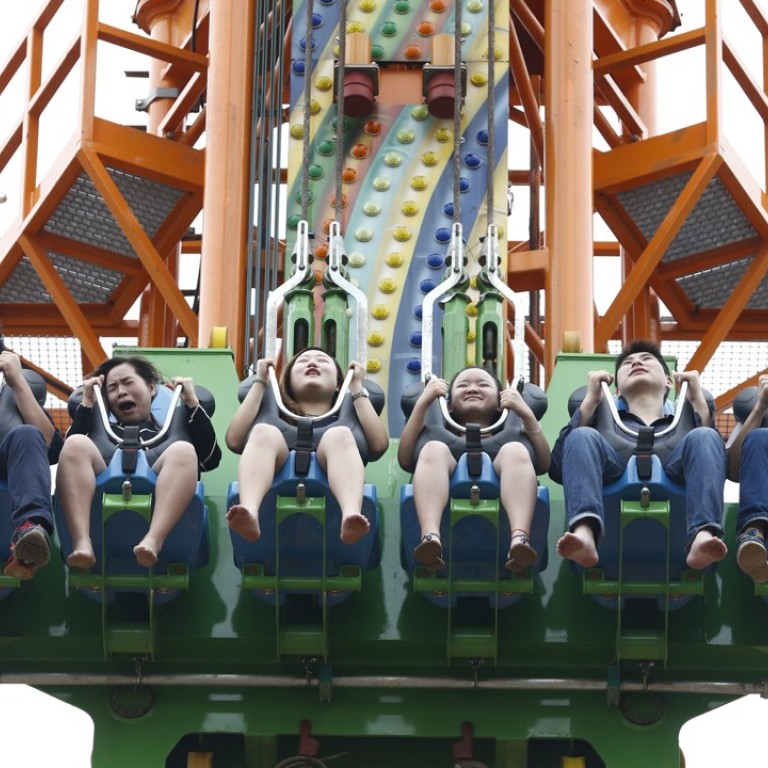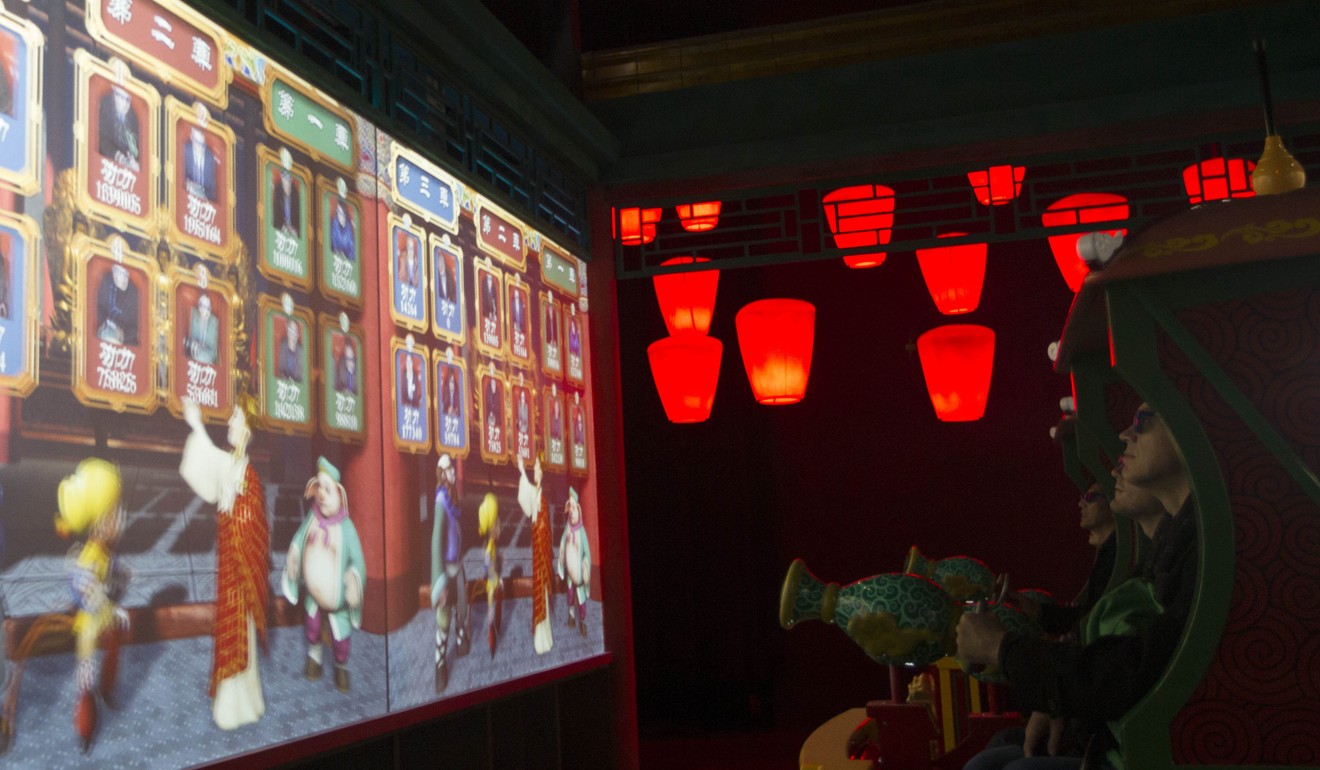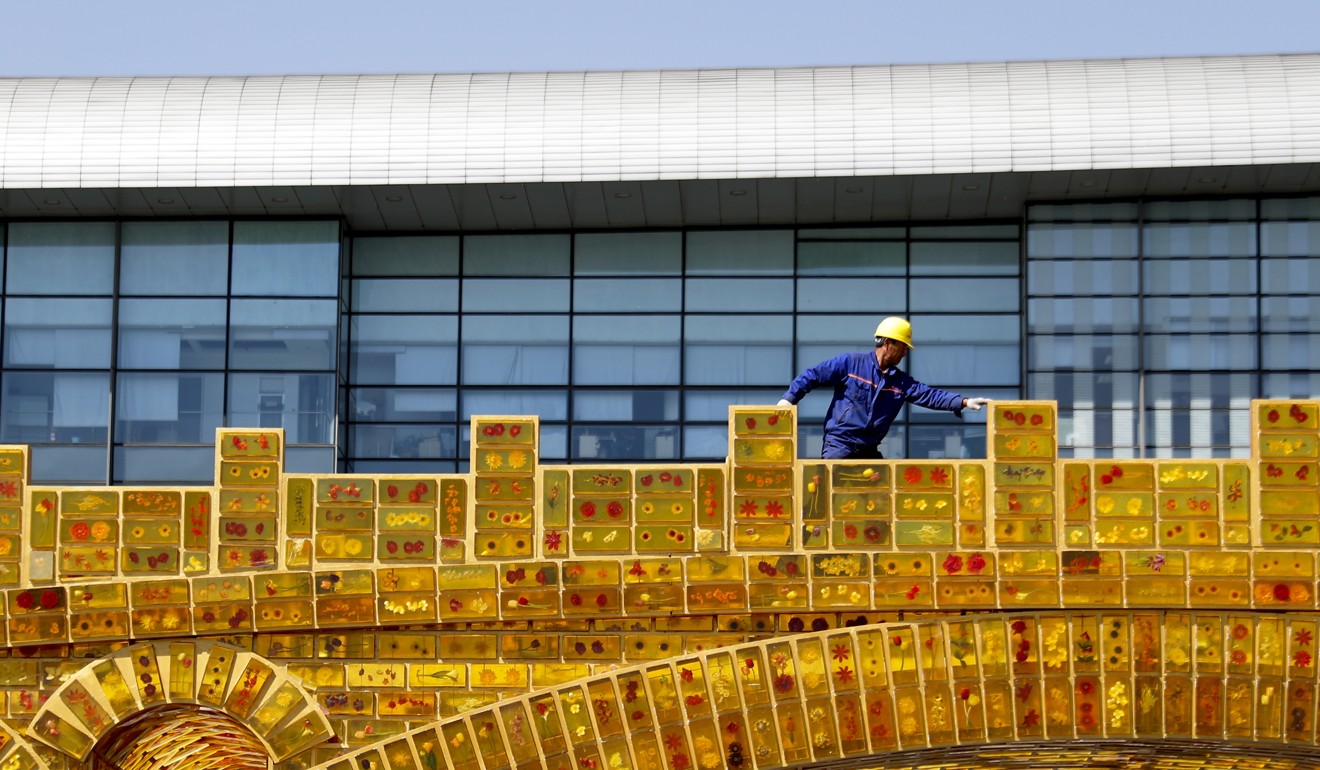
China’s richest man builds mega parks on Belt and Road route
Wang Jianlin, chairman of Dalian Wanda Group, says they will build two entertainment complexes in countries along the route, as China’s biggest businesses lend weight to Beijing’s trade plan to export its economic and soft power globally
Wang Jianlin, China’s richest man, has revealed his plans to build gigantic theme parks whose scale could rival Disneyland, in countries along the Belt and Road route, as Chinese business heavyweights answer a national calling from Beijing for the ambitious trade development plan.
Pacts to build the two entertainment complexes, called Wanda City, are expected to be inked this year, said the property-to-entertainment tycoon, who chairs China’s largest private property developer Dalian Wanda Group in a speech to university students in Beijing on Friday.
His remarks came ahead of President Xi Jinping’s pledge of a mammoth US$113 billion in extra funding for the plan to boost trade and investments across 62 countries across Asia, the Middle East and Europe, particularly in developing ones like Kazakhstan and Malaysia.
“With the four planned overseas projects, we are already the world’s key exporter of cultural and tourism projects, second only to America’s Disneyland and Universal Studio,” Wang said.
He said they had already signed contracts to open two Wanda City theme parks in France’s Paris and India’s Delhi, but did not specify which two “major countries” linked along the Belt and Road route where the remaining Wanda City parks will be constructed.

With the four planned overseas projects we are already the world’s key exporter of cultural and tourism projects, second only to America’s Disneyland and Universal Studio
But major setbacks like dismal visitor numbers have led to recent renovation of its 3.8 billion yuan flagship movie amusement park in China and a rethink of the company’s culture and entertainments agenda.
“Of course we have a long way to go before catching up with Disney, but we will never close the gap if we do nothing,”said Wang, who once hailed his parks as a symbol of Chinese entertainment culture in the face of encroaching Western influences.
His conglomerate has also been in the forefront of Xi’s ambition to export China’s soft power globally, with a worldwide buying spree that added AMC Entertainment, Odeon & UCI Cinemas Group, Hollywood studio Legendary Pictures, as well as stakes in notable European football clubs, to the Wanda stable.

“Wanda is answering the government’s call,”said Zhao Huanyan, chief knowledge officer with hospitality and leisure consultancy Hotelsolutions Consulting.
“In the meantime it might also want to enjoy the first-mover advantage because many countries along the new Silk Road routes are less prosperous with little to no presence of world-class theme parks.”
Wanda is answering the government’s call

“In fact, many of the heavy lifters in Belt and Road are the private sector or state-owned enterprises from China that are very much governed by the profit motive,”said Cheah Cheng-hye, chairman and co-chief investment officer of Value Partners Group
“Execution has been slow because good projects are difficult to find and many long-term projects produced quite low returns so it is going to take time,” Cheah said.
Construction of a major theme park, for instance, will serve as a substantial boost to local infrastructure and employment, but it can take a number of years even for blockbuster projects like Hong Kong Disneyland to turn a profit.
Execution has been slow because good projects are difficult to find and many long-term projects produced quite low returns so it is going to take time
Alexious Lee, head of China Industrial research with CLSA, said the US’s move to pull out of the Trans-Pacific Partnership earlier this year suggested that China will assume a much bigger regional role.
“Xi Jinping’s strategic Belt and Road initiative is enabling China to export its overcapacity and relieve downward pressure on the economy by fostering closer trade collaboration with participating nations,”he said.

